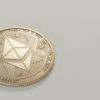
Negotiating any sort of contract can be intimidating, especially when you are transferring money or other assets. In these cases, you want to be sure that the deal you are making will go through and that everyone will hold up their end of the deal. Otherwise, you may end up getting ripped off.
Smart contracts are a relatively new technology that can help with this. This blockchain technology has plenty of unique applications and advantages to it.
So, what are smart contracts, and how can they help? This article will explore smart contracts and explain how they are changing the game.
Related: How can Blockchain Technology Revolutionize the Supply Chain?
What Are Smart Contracts?
Paper contracts are great. They provide people with the assurance that everyone involved in a specific deal has agreed to that deal. They even include a signature from everyone involved that verifies this fact.
However, paper contracts have their limitations. For one, they are physical objects that need to be carried from place to place if you want to show them to someone. On top of this, they are vulnerable to deterioration or damage in general. While a paper contract is technically still valid even if lost, it will be tough to use it as evidence in court. Plus, they don’t work as well in an increasingly digital world.
Finally, paper contracts can be broken. Besides a signature, there is no guarantee that the other party will follow the terms of the contract. You could deliver on your end, but they may come up with an excuse or reason they cannot deliver on their end.
These limitations have led to the rise of smart contacts. These are essentially a bundle of computer code tied to the blockchain and designed to verify something. Once the code has been created, it is permanent and cannot be undone. This makes smart contracts one of the many blockchain applications outside of crypto.
This allows smart contracts to function like paper contracts. However, smart contracts are digital and can be looked at on the blockchain. In addition, smart contracts are often executed automatically and, thus, do not require a third party.
Want to work with a financial institution that breaks down the barriers between you and your cryptocurrency? Learn how Unbanked is taking advantage of the newest technologies with our cryptocurrency wallet.
What Are Smart Contracts Used For?

Because of their versatility, smart contracts can be used for a number of different things. At their core, they can be used for anything that needs to be verified digitally. However, they have other utility that makes them a great choice for many different tasks.
The most common use of a smart contract is facilitating financial transactions. People use smart contracts to verify purchases, and the money is then transferred automatically. This allows the transaction to occur in a risk-free way, as neither party has the opportunity to go back on what they have promised.
While this has obvious use when conducting a financial transaction, it can also be used for plenty of similar transactions. Real estate transactions are a great example of this. The title of a property can even be tied to an element of the blockchain. In addition, trading in stock and commodities and some forms of lending all operate well when conducted through smart contracts.
Smart contacts can even be used to create entirely new technologies that didn’t exist without the blockchain. For instance, NFTs are a new technology that uses smart contracts. Without smart contracts, the system of verifying ownership of NFTs doesn’t work.
This indicates that we haven’t even seen the full possibilities presented by smart contracts. It is entirely possible that innovations will lead to entirely new uses in the future. There are even new innovations that could make smart contracts and other blockchain technologies helpful in healthcare.
Related: How Does Bitcoin Mining Work? [Complete Guide]
Pros and Cons of Smart Contracts
Smart contracts have plenty of positive features. However, they also have some drawbacks. Understanding these and knowing what they are will help you know when using a smart contract is preferable and when using something else would be better.
Most people consider the main benefit of smart contracts to be that they can be executed without a third party. You don’t need a bank or other financial institution to take a cut of the transaction or an expensive notary to add additional costs. This saves money for both parties and simplifies the entire arrangement.
Along with this, smart contracts are fast and accurate. They rely on computers’ speed and precision, which is beyond anything humans are capable of.
Finally, smart contracts are permanent and cannot be altered or changed. Once they are signed, you don’t need to worry about the other party going back on the deal or attempting to alter it somehow.
Unfortunately, this same permanence is also a drawback. Since a smart contract cannot be altered, it is not open to revisions or changes. Instead, an entirely new contract will need to be signed.
Other downsides come from the way smart contracts work. Though they primarily rely on computers, they need to be instigated by a human, creating a part of the process open to human error. In addition, depending on the blockchain protocol used, there may be areas through which the blockchain could be exploited. However, this downside can be mitigated by choosing a reliable system.
Ready to get started with buying, selling, and sending cryptocurrency on your terms? Sign up for your Unbanked account with no hidden fees!
What Blockchains Use Smart Contracts?
Smart contracts use blockchains to operate. However, not every blockchain is capable of handling smart contracts. Luckily, some of the most popular blockchains do.
Ethereum is well known for its ability to handle smart contracts. This is one of the things that, up to recently, separated it from its main competitors.
In the past, Bitcoin could not handle smart contracts. However, with the Taproot upgrade, it is now capable of communicating with layers that do have smart contract capabilities.
These are the two most popular blockchains out there and are the two you will see most often when it comes to smart contracts. However, there are plenty of other options out there. Plus, new technologies are leading to the creation of even more options on a regular basis. So, make sure to do your research into what is available before picking one for your next smart contract.

Using Smart Contracts
Smart contracts are great and can be used for a variety of different purposes. These contracts make life easier and make conducting business safer. Plus, their decentralized nature makes them another way in which blockchain technology is putting power in the hands of the people.





